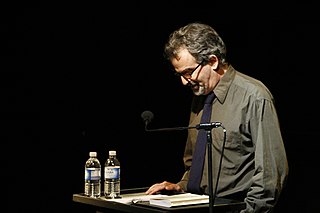A Quote by Muriel Rukeyser
The statement of ideas in a poem may have to do with logic. More profoundly, it may be identified with the emotional progression of the poem, in terms of the music and images, so that the poem is alive throughout. Another, more fundamental statement in poetry, is made through the images themselves those declarations, evocative, exact, and musical, which move through time and are the actions of a poem.
Related Quotes
The subject of the poem usually dictates the rhythm or the rhyme and its form. Sometimes, when you finish the poem and you think the poem is finished, the poem says, "You're not finished with me yet," and you have to go back and revise, and you may have another poem altogether. It has its own life to live.
One day while studying a Yeats poem I decided to write poetry the rest of my life. I recognized that a single short poem has room for history, music, psychology, religious thought, mood, occult speculation, character, and events of one's own life. I still feel surprised that such various substances can find shelter and nourishment in a poem. A poem in fact may be a sort of nourishing liquid, such as one uses to keep an amoeba alive. If prepared right, a poem can keep an image or a thought or insights on history or the psyche alive for years, as well as our desires and airy impulses.
A successful poem says what a poet wants to say, and more, with particular finality. The remarks he makes about his poems are incidental when the poem is good, or embarrassing or absurd when it is bad and he is not permitted to say how the good poem is good, and may never know how the bad poem is bad. It is better to write about other people's poetry.
I think that poetry is an act of celebration, that anytime you're writing a poem, it means that you're celebrating something, even if it's a sad poem, if it's an angry poem, a political poem or anything at all. The fact that you're taking the time and energy to pick up this thing and hold it to the light, and say, "Let's take some time to consider this," means that you've deemed it worthy enough to spend time on - which, in my opinion, is celebrating.
Lucky accidents seldom happen to writers who don't work. You will find that you may rewrite and rewrite a poem and it never seems quite right. Then a much better poem may come rather fast and you wonder why you bothered with all that work on the earlier poem. Actually, the hard work you do on one poem is put in on all poems. The hard work on the first poem is responsible for the sudden ease of the second. If you just sit around waiting for the easy ones, nothing will come. Get to work.



































